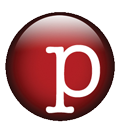 The majority of hacks on business websites are code injections. The primary goal of the injection is to redirect traffic from your site to an affiliate site and links. Most of the redirected landing pages are actually organizations that pay hackers pennies for click-throughs. So it’s in their best interest to infect as many sites as possible. The more sites they breach to the more they earn. In addition, some of these landing pages have sophisticated scripts which capture the individuals data when embedded links are clicked.
The majority of hacks on business websites are code injections. The primary goal of the injection is to redirect traffic from your site to an affiliate site and links. Most of the redirected landing pages are actually organizations that pay hackers pennies for click-throughs. So it’s in their best interest to infect as many sites as possible. The more sites they breach to the more they earn. In addition, some of these landing pages have sophisticated scripts which capture the individuals data when embedded links are clicked.
A majority of todays infected sites are CMS, Content Management Systems, such as WordPress, Joomla & Drupal. These CMS run on SQL, or Structured Query Language. SQL is a programming language used to manage databases. In essence, it’s used when a website needs to call up a piece of information from its database, either to process it or present it to a user. It is here where they look for vulnerability.

Last year received numerous requests from business owners expressing problems with their sites i.e.. Google search returns “This site may be hacked”, their customers are being redirected to unsavory pages, or their site is running very slowly. With the popularity of CMS the issue is becoming more frequent. Injections are time consuming and costly to remove. However, there are proactive solutions one can take to lessen the likelihood of an attack.
If your website is running any of the above CMS platforms it’s imperative to follow certain protocol and be diligent about it:
- Update the CMS framework when new versions are launched
- Update all plugins, modules and components
- Update your theme
- Run malware software
- Have strong username and passwords
- Maintain regular back-ups
Contact us today to discuss your website security and vulnerability.
info @ prospect marketing . com or text: 413•931•1050 with any questions.
Next Posting: Help! I’ve been Blacklisted!

